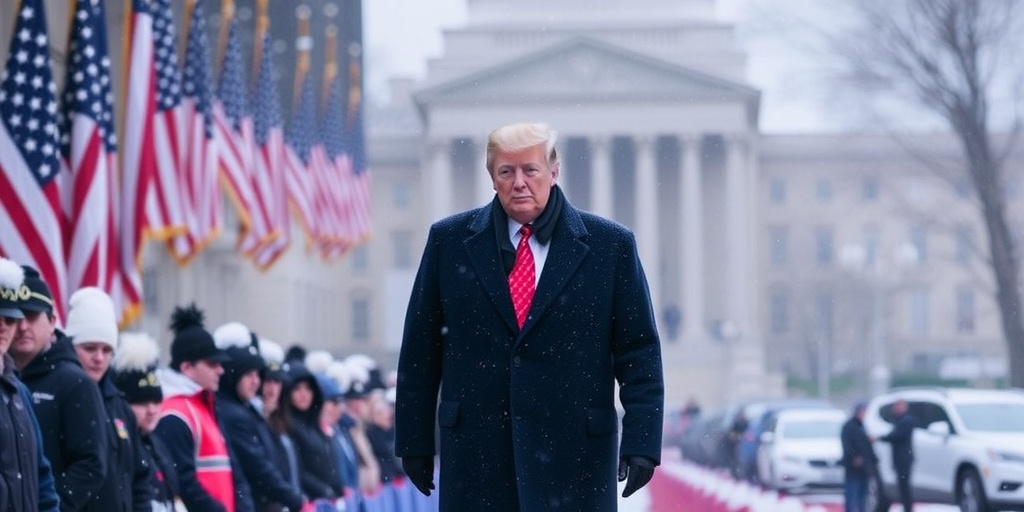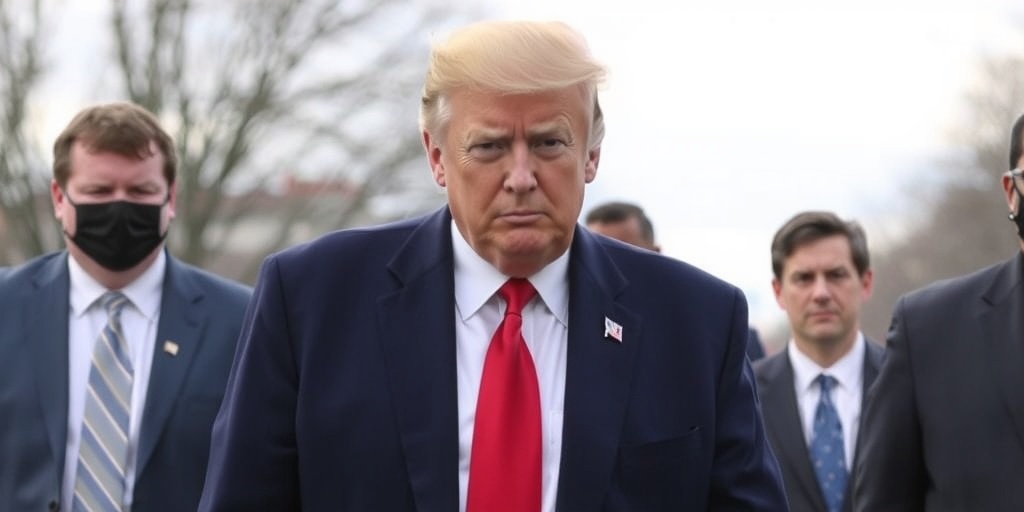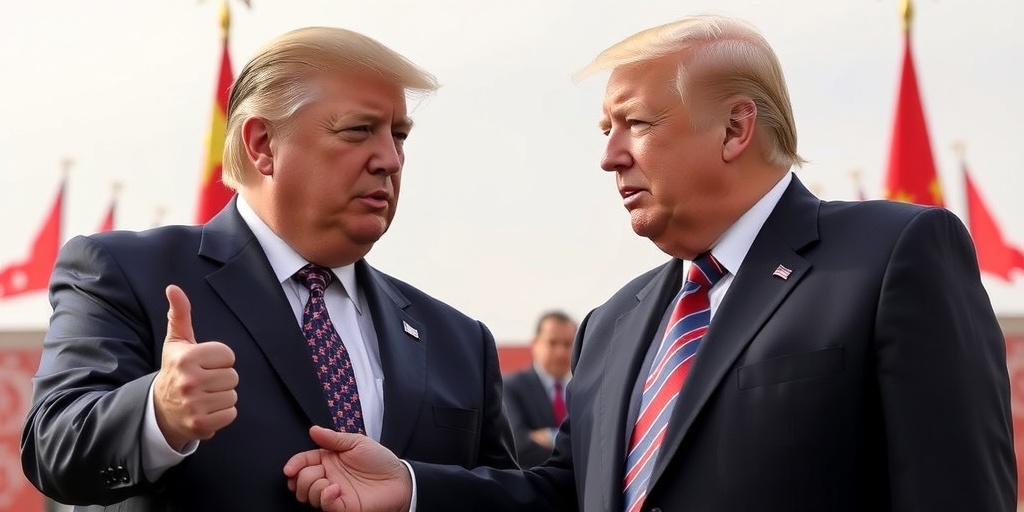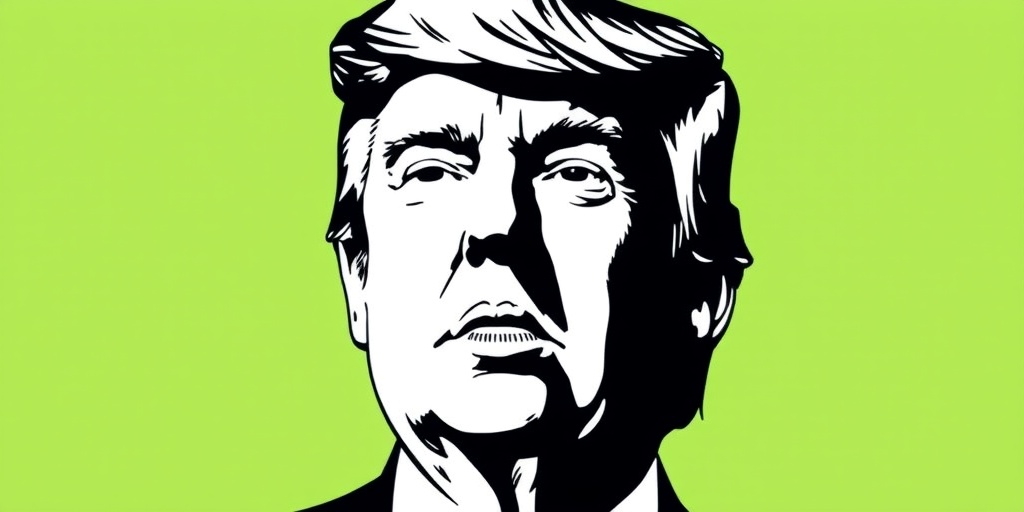Now Reading: Trump’s Tariffs: A Boon for Tesla at Rivals’ Expense
-
01
Trump’s Tariffs: A Boon for Tesla at Rivals’ Expense
Trump’s Tariffs: A Boon for Tesla at Rivals’ Expense
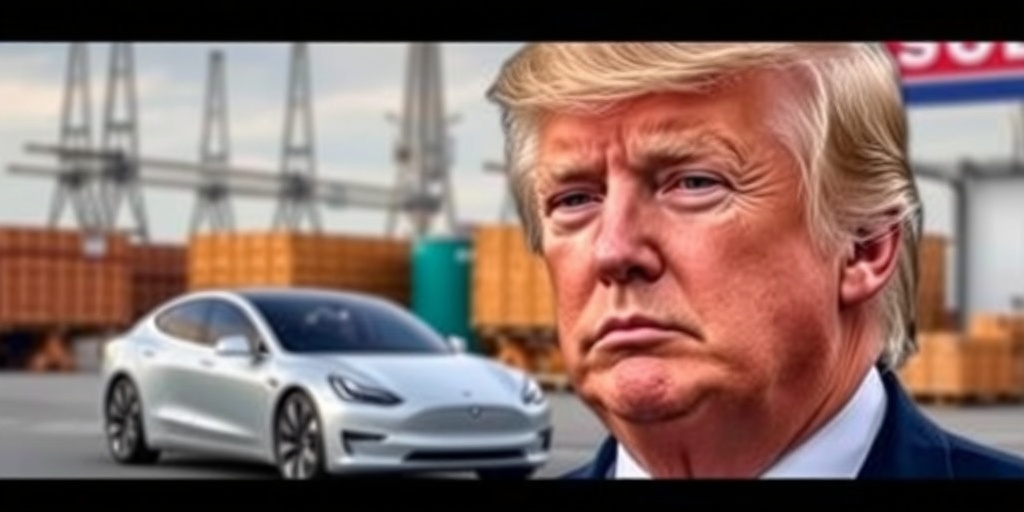
Tesla’s Resilience Amid Trade Tensions and Tariffs
As President Trump imposes new tariffs on Chinese goods and threatens a trade war with North American allies, it appears that one significant player in the automotive industry might navigate these choppy waters with less turbulence than its competitors—Tesla. However, the electric vehicle (EV) manufacturer, helmed by Elon Musk, faces its own unique vulnerabilities, particularly in regard to its substantial operations within China.
Tesla has managed to establish largely self-sufficient supply chains in both the United States and China, a feat not easily achieved in today’s globally interconnected trade environment. Due to this strategy, the tariffs placed on Chinese imports, along with looming threats of duties on products from Mexico and Canada, may unintentionally benefit Tesla by placing a heavier burden on its rivals.
While there is no evidence to suggest that Musk has direct influence over U.S. trade policies, the tariffs could serve as yet another competitive advantage for Tesla in its ongoing rivalry with traditional automakers. Recently, President Trump temporarily paused a 25% tariff on most auto parts from Canada and Mexico; however, the reprieve is set to expire soon, leaving U.S. manufacturers reliant on foreign supply chains facing uncertainty.
The current administration’s moves extend beyond tariffs; there is a push to eliminate federal support for fast-charging stations essential for electric vehicle use. Such actions could stifle other manufacturers trying to compete with Tesla’s expansive charging network. Cuts to loans and subsidies that help competitors like Ford and Rivian build electric vehicle infrastructure and production facilities add another layer of complexity.
Despite Musk’s apparent silence on trade issues and some of the administration’s moves that could jeopardize electric vehicle growth, his affiliation with the Trump administration does elevate his influence within the industry, according to experts. However, this unique position may be viewed in a negative light, as some accuse Musk of a conflict of interest due to his financial ties to Tesla stock, which has recently experienced a significant decline.
The implications of the ongoing trade war could pose risks to Tesla, especially as it faces declining sales in China and Europe at a time when overall electric vehicle demand is rising. Musk’s extensive investments in China further complicate matters, making him vulnerable should trade tensions escalate.
Tesla’s operations in China are crucial, given that it produces a significant volume of vehicles there, and the company’s prestige in the Chinese market is waning as competition rises from local electric vehicle manufacturers like BYD and Xiaomi. With Tesla’s sales reportedly dropping by 50% in February year-over-year, analysts note that the company could find itself at a disadvantage as local brands increasingly attract consumers.
One advantage Tesla holds comes from its ability to operate independently from many global supply chains that rely heavily on imported parts. Its manufacturing plants in Austin, Texas, and Fremont, California, are bolstered by robust domestic production, which is less likely to be impacted by tariffs compared to competitors’ products manufactured abroad.
However, imported components still represent a quarter of Tesla’s cost structure, meaning the company is not entirely shielded from tariff repercussions. For instance, vehicles like General Motors’ Chevrolet Equinox, which is produced in Mexico, could face sharply increased prices due to tariffs, posing a competitive challenge for Tesla.
Tesla’s strategic establishment of factories in both the U.S. and China reflects foresight, allowing the company to mitigate risks associated with potential trade disruptions. Nevertheless, its reliance on Chinese-produced battery materials, particularly high-purity graphite, remains a point of concern as tariffs on such goods could directly impact its competitiveness.
Despite Mr. Musk’s complexities in navigating these challenges, experts predict that he may still have a role to play in fostering U.S.-China relations, especially in terms of trade. Nonetheless, the overarching sentiment among analysts is that while Tesla is currently better positioned than many competitors to handle the fallout from these trade policies, the volatility of the global market means that it must remain vigilant.
In the delicate balancing act between fostering bilateral trade relationships and navigating domestic manufacturing needs, Tesla’s future will depend not only on how effectively it can pivot in response to tariffs but also on its ability to adapt to the rapidly shifting landscape of the electric vehicle market. As analysts observe the interplay between U.S. trade policies and Tesla’s global strategies, it is evident that the road ahead will be anything but straightforward.
Stay Informed With the Latest & Most Important News
Previous Post
Next Post
-
 01New technology breakthrough has everyone talking right now
01New technology breakthrough has everyone talking right now -
 02Unbelievable life hack everyone needs to try today
02Unbelievable life hack everyone needs to try today -
 03Fascinating discovery found buried deep beneath the ocean
03Fascinating discovery found buried deep beneath the ocean -
 04Man invents genius device that solves everyday problems
04Man invents genius device that solves everyday problems -
 05Shocking discovery that changes what we know forever
05Shocking discovery that changes what we know forever -
 06Internet goes wild over celebrity’s unexpected fashion choice
06Internet goes wild over celebrity’s unexpected fashion choice -
 07Rare animal sighting stuns scientists and wildlife lovers
07Rare animal sighting stuns scientists and wildlife lovers














